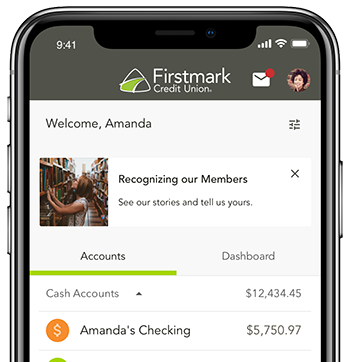
Your privacy is important to us — don’t become a victim!
As banking technologies evolve, so do the actions of the bad guys. It is important to be aware of the different scams that exist, so that you do not fall victim to phishing scams and email spoofing.
What is Website Spoofing?
Website spoofing is used to make people believe that you are interacting with a trusted company or person. At a quick glance, the website appeals to be real. It is important to look closely at the URL and exercise caution if something looks or feels strange. We encourage you to take special care when visiting our website, which is accurately listed here as www.firstmarkcu.org.
What is Email Spoofing?
Email spoofing is when a hacker sends emails that appear to originate from trustworthy sources such as familiar companies, or sometimes family members or co-workers. The email spoofing is attempting to have the recipient open a file or click on a link, and in most cases a spoofed email is meant to lead a victim to a spoofed website. If you receive an email from Firstmark Credit Union that you find suspicious, we encourage you to contact us directly at 210.442.0100.
Firstmark will never:
- Ask you to download software via text or email.
- Ask you for sensitive account or personal information via text or email.
How do I stay protected?
- Do not click on hyperlinks in suspicious texts or emails.
- Never send sensitive information via text or email, including your account number, Social Security Number or Debit Card/Credit Card PIN.
- Monitor your accounts daily and report unusual or suspicious activity immediately via a secure message in Online/Mobile Banking, by phone or by visiting your nearest Financial Center.
To learn more about how to protect your private information during the holiday season, please visit our Fraud Awareness section in our Newsroom.



